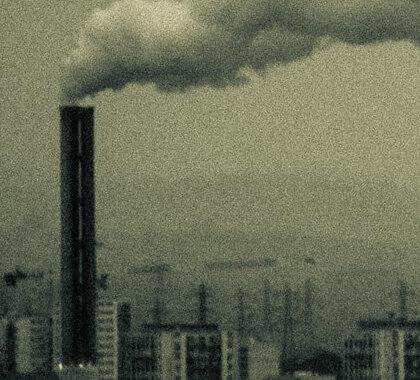Climate change is a serious challenge. We want to take meaningful actions to battle global warming. But, at the same time, consumers and businesses in a recovering economy are demanding more energy.
At the COP26 climate summit, President Biden on Tuesday announced proposed rules for the Environmental Protection Agency (EPA) to cut methane emissions from U.S. oil and gas operations. And in Congress, Democrats are pushing partisan climate legislation through the budget process. Some of their proposals would have serious unintended consequences, especially the proposed tax on methane emissions. In fact, this short-sighted approach to battling climate change will do little to reduce greenhouse gas emissions from the oil and gas industry. Here’s why:
Methane is a powerful greenhouse gas sometimes released in varying quantities from our oil and natural gas infrastructure. Once it is found underground, oil and gas is brought up to the surface, gathered into a centralized pipeline network, and then shipped off to production or storage facilities some distance away. Eventually, that product is used to heat our homes, generate electricity at power plants, or be converted to everything from chemicals to consumer products we use every day.
Methane that escapes during production or transportation is called fugitive or vented emissions. These emissions have dropped remarkably sharply over the past decade. Why? Because energy companies have every incentive to capture methane, which is the principal component of natural gas. Those who put hard work and money into producing and transporting natural gas don’t want to lose any of it on the way to market. Their goal is to deliver, and sell, as much as possible — safely and reliably. The results speak for themselves: The EPA’s most recent national greenhouse gas inventory, published in April 2021, shows methane emissions across the entire natural gas supply chain declined by 16 percent from 1990 to 2019, down to just 1 percent of annual production.
Economic incentives and safety goals are not the only factors at play. Methane emissions are already under scrutiny by state regulators and the EPA. Bad actors can be nailed with steep penalties under the Clean Air Act. In fact, the EPA is poised to release a proposed rule any day now to increase the stringency of its methane reduction requirements for facilities that get built in the future and to impose similar mandates on existing well sites and facilities. The Department of Transportation Office of Pipeline Safety also has proposed rules in the works to increase requirements for leak detection and repair. Imposing a methane tax would simply increase the regulatory burden that’s already in place and in the process of being expanded.
Plus, there are other market incentives for reducing methane. Several initiatives offer a way to audit and certify that a producer is using best practices to limit emissions well below average levels. That certified lower emission product is expected to earn a premium on the market.
Would an extra tax incentivize further cuts in methane releases? Probably not. The proposed tax would be passed along to the homeowners and businesses that ultimately pay for the fuel cost in their energy bills. The tax also could reduce the financial resources available to invest in additional methane capture.
The proposed methane tax is not about reducing greenhouse gases or encouraging greener operations by oil and gas companies. It’s about creating a new stream of revenue for government coffers. But, like everything else with this tax, even that cynical truth isn’t as straightforward as it seems; the revenue wouldn’t really come from companies but, rather, from business and household energy users.
The methane tax does nothing to penalize bad behavior, duplicates regulatory oversight that’s already in place, and funnels money from our pockets to the U.S. Treasury at a time when energy prices are already high and rising — while at the same time doing little or nothing to reduce methane emissions.
The proposed methane tax is a solution in search of a problem. Let’s put an end to the idea once and for all.
First published at The Hill.
Photo by Damian Bakarcic, Attribution 2.0 Generic (CC BY 2.0).





